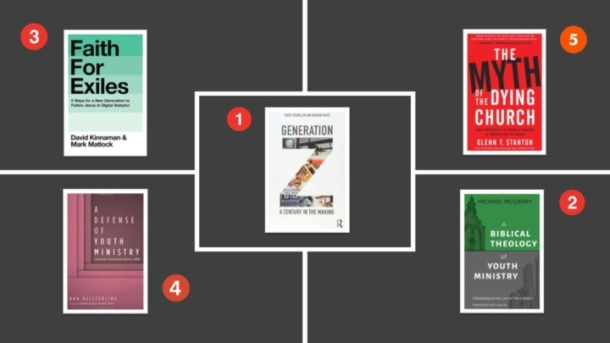8 Urgent Insights on Gen Z that Every Pastor Needs to Know

There may be a ministry “seismic shift” headed toward the American church!
A seismic shift can be defined as sudden or dramatic change that happens in a very short period of time.
Pastors and other church leaders need to realize that due to the cultural influence of the members of Generation Z, the church may be facing an almost unprecedented change in the way a majority of people in this country look at church programming. Often referred to as “Gen. Z”, this generation is comprised by today’s college-age young adults and current senior high young people. Although some researchers use other time periods, most identify Gen. Z as being born between 1995 and 2010 (for instance see, Generation Z: A Century in the Making, by Corey Seemiller and Meghan Grace).
Gen. Z is a cohort of approximately 65 million people (https://www.visioncritical.com/blog/generation-z-statistics), and will soon comprise about 40% of the entire US population (https://www.slideshare.net/sparksandhoney/gen-z-2025-the-final-generation-preview/7-SPEARHEADING_CHANGE_AT_THESPEED_OF). According to one source, Gen. Z will become the largest living generation in American history (https://www.businessinsider.com/generation-z).
As researchers and social scientists are reporting, this generation is already incredibly influential, and they are about to make a massive and long-lasting change on every institution they touch – including the church. As one respected youth worker puts it, it’s time to stop “doing Millennial ministry” (https://teenleadershipconference.com/stopdoingmillenialyouthminsitry/) and recognize that a new generation has arrived. The church and church leaders must adapt accordingly.
It’s important for pastors to understand that members of Gen. Z have come of age in a culture of significant religious and cultural influences. These influences include the mass departure from the church by young adults (see You Lost Me: Why Young Christians are Leaving the Church and Rethinking Faith), a dwindling loyalty toward denominational or institutional affiliations (see Rise of the Nones: Understanding and Reaching the Religiously Unaffiliated, by James Emery White), a move toward a post-Christian and post-church mentality (see Youth Ministry in a Post-Christian World: A Hopeful Wake-Up Call, by Brock Morgan), and a growing number of non-traditional, broken, or dysfunctional households (see Households of Faith, published by Barna Group).
Much has been written about the general characteristics of Gen. Z (for more information see the bibliography at the conclusion of this article). However, here are five practical insights for pastors and other church leaders to consider as they develop creative and functional ministries to reach and minister to members of Gen. Z.
- They crave the communication of truth in an environment where they can ask difficult and serious questions.
This is not a generation that will be attracted by entertainment or fluff. They are seeking truth and will respond positively to the clear exposition of Scripture and confident presentations of the Gospel. They are seeking real answers to their most difficult questions. A recent study from Barna Research tells readers to create the space for them to “feel the freedom to ask the big questions”. (See Faith for Exiles: 5 Ways for a New Generation to Follow Jesus in Digital Babylon.) This begins by making church services and Bible studies places they feel are welcoming and non-threatening.
This is truly a post-Christian generation. One author puts it this way, “Perhaps the most defining mark of members of Generation Z… is their spiritual illiteracy… They do not know what the Bible says. They do not know the basics of Christian belief or theology.” (James Emery White in Meet Generation Z: Understanding and Reaching the New Post-Christian World, p.131.) To reach members of Generation Z, pastors must see that church is more than a once-a-week lecture and worship time. Church programming will need to feature ways to creatively teach Gen. Z solid doctrinal truth with methods that provide opportunities to them to apply that truth to their everyday lives.
- They are looking to develop strong relationships in a culture of increasingly dysfunctional and broken households.
Gen. Z’ers are more likely than other recent generations to grow up in broken, unstable, or dysfunctional homes. One researcher put it this way, “Churches that want to understand and serve teens and young adults should focus first on true household ministry, and not just family ministry” (Households of Faith: The Rituals and Relationship That Turn a Home Into a Scared Space, by Barna Group). This means that more and more living situations in this culture will be comprised of “households” instead of traditional family units. According to one author, members of Generation Z are growing up with in an increasing number of single-parent homes; a growing number of cohabiting, non-married parents; a rising number of homes with single mothers; and an increasing number of same-sex couples (see Generation Z, by Seemiller and Grace). These statistics should motivate pastors to lead their churches to be a “family” for those in today’s culture from non-traditional and fractured households.
- Christian members of Gen. Z are looking for ways to share their faith and want to learn how to witness effectively.
Probably somewhat contrary to popular beliefs about 75% of this generation who claim to be Christians and living for God report that they feel responsible to tell others about their faith. (See Faith for Exiles: 5 Ways for a New Generation to Follow Jesus in Digital Babylon.) This is a generation that feels very strongly about living on mission. They want to be involved in something that matters for eternity. Churches should capitalize on this renewed emphasis on evangelism by developing creative avenues for them to present the Gospel and share their faith with others.
This generation also feels a heightened sense of responsibility and stewardship. For example, they won’t understand why most church buildings in this country remain unused throughout the week. Long gone are the days of church buildings that feature a large number of small meeting rooms that were once used for a wide variety of age-group programming. This won’t make sense to Gen. Z’ers. They’ll want to figure out ways for churches to use their buildings for outreach functions for the community.
They’ll also be very interested in sharing the Gospel cross-culturally. The world feels quite small to this generation and many of them will be excited about the potential of short-term missions trips, either internationally or to cross-cultural areas within the United States.
- Churches must utilize technology to communicate to this generation in a culture that is progressively disloyal and over-scheduled.
Members of Generation Z are truly digital natives. They’ve had internet-connected devices in their pockets since they were young children. They likely grew up in homes that allowed them almost ubiquitous access to various digital smart phones and tablets; and they attended schools where teachers gave them internet-based assignments on their own iPads, or Chromebooks since kindergarten or pre-school. They are more comfortable with their digital Bibles than paper copies, and probably use their phones for daily devotions and in-depth Bible study. They also are very likely to fact-check what preachers or Bible teachers say, instead of just accepting what they hear as truth.
Technology is a game-changer for the American church. This doesn’t mean that Gen. Z will reject low-tech methods of communication. In fact, old-fashioned, lecture-style preaching may seem refreshing and genuine to them. Pastors should remember that this generation does not need the church to try to impress them with the church’s technological prowess. They’re quite capable of creating or locating their own quality digital content. However, due to this generation’s busy schedules, it will be important for churches to utilize various means of technology to make sermons, seminars, publications, and other materials available for them to find on their own schedules on the church’s website.
Today’s pastors have undoubtedly noticed that “practicing Christians” are only attending church approximately one Sunday each month (https://www.barna.com/research/state-church-2016/). This trend is very likely to continue with members of Generation Z. Their lives will tend to be quite over-scheduled, with other personal priorities being more important to them than regular church attendance and involvement. Plus, Gen. Z does not possess an innate loyalty to any particular church or church function. This practice will necessitate that pastors employ the use of modern technology to communicate regularly and successfully to them.
- Churches should be intentional about developing growing inter-generational relationships and connections.
This generation is being forged by two seemingly conflicting pressures. As mentioned earlier, they are more likely to grow up in households without consistent parental influences, and they appreciate the influence of significant older adults. Their lives have been lined by a litany of coaches, teachers, youth workers, small group leaders, and other caring adults. Of course, churches must develop and institute carefully crafted child protection policies that safeguard kids from sinful adult predators. However, today’s teenagers and young adults will profit greatly from the influence of Godly older adult mentors.
The practice of segregating and isolating young people from other generations has helped fuel their departure from the church following their years in high school. Emerging adults are not likely to commit to a church’s adult ministries unless they have formed growing relationships with a variety of Godly adults in the church prior to their graduation from high school. Churches will need to restructure their programming efforts to balance peer ministries with growing inter-generational connections for Gen. Z.
The American church is indeed facing a seismic shift as members of Generation Z move through adolescence into adulthood. Business as usual will not work. Pastors will need to retool and rethink their approach to ministry programming to be effective with today’s emerging adults. Gen. Z is here!
This article originally appeared: https://www.crosswalk.com/church/pastors-or-leadership/urgent-insights-on-gen-z-that-every-pastor-needs-to-know.html
Select Bibliography:
- White, James Emery. Meet Generation Z: Understanding and Reaching the New Post-Christian World. Baker Books, Grand Rapids, MI, 2017.
- (Editors, Barna Group) Gen Z: The Culture, Beliefs and Motivations Shaping the Next Generation. Barna Group & Impact 360 Institute, Ventura, CA, 2019.
- Seemiller, Corey and Meghan Grace. Generation Z: A Century in the Making. Routledge / Taylor & Francis Group, New York, NY, 2019.
- Twenge, Jean M. iGen: Why Today’s Super-Connected Kids Are Growing Up Less Rebellious, More Tolerant, Less Happy–and Completely Unprepared for Adulthood–and What That Means for the Rest of Us. Atria Books / Simon & Schuster, New York, NY, 2017.


